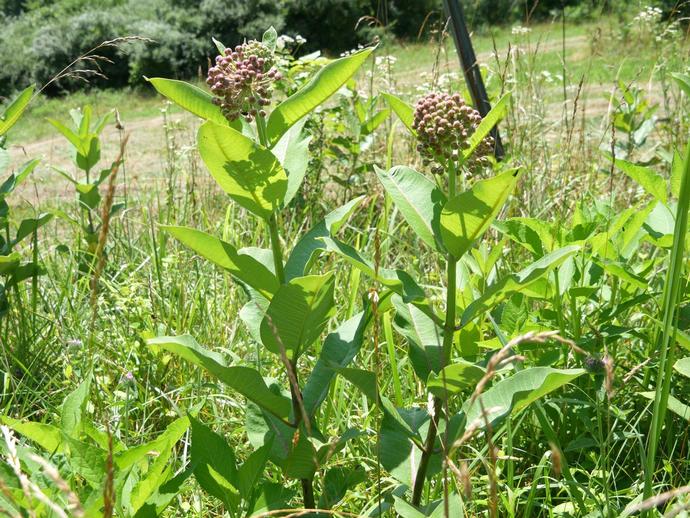July 15, 2020
This is Asclepias syriaca, also known as common milkweed or butterfly flower. This common plant can be found throughout much of the US east of the Rocky Mountains, but there are plenty of other types of milkweed that can be found out west.
If you find a patch of milkweed, you'll likely notice that there are a wide variety of insects that eat milkweed, including the caterpillars of monarch butterflies! You might think that milkweed is just a naturally delicious plant; however, it's trying its best to be the exact opposite.
When you break any part of a milkweed plant, you'll quickly learn how it gets its name; a milky white fluid known as latex wells up at the broken spot. This liquid is packed with toxic glycosides, which are particularly concentrated in the leaves. However, a large number of insects have learned to adapt to these toxins and require milkweed plants to thrive. In some cases, insects even use milkweed toxins to their own advantage. Monarch butterflies and their caterpillars taste terrible to predators because they contain glycosides picked up from eating milkweed!
Tomorrow, we'll look at another insect that makes its home on milkweed. #BenInNature
This post brought to you by VMNH Corporate Supporter Everything Outdoors, LLC.
ABOUT THIS POST
Social distancing can be difficult, but it presents a great opportunity to become reacquainted with nature. While he is working from home, Administrator of Science Ben Williams is venturing outdoors each day to record a snapshot of the unique sights that can be found in the natural world.
NATURE PHOTO IDENTIFICATIONS
If you discover something in nature that you would like help identifying, be sure to message us right here on Facebook with a picture (please include location and date of picture) and we'll have our experts help you identify it!

 Hours & Admissions
Hours & Admissions Directions
Directions

